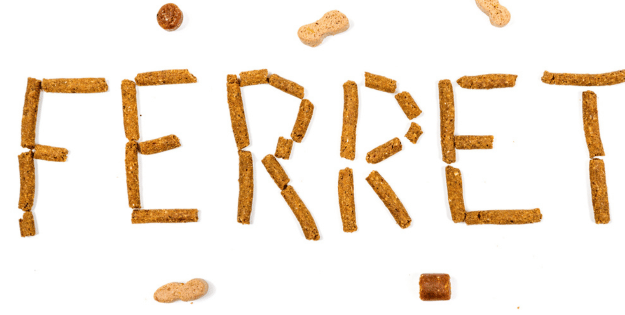Ferrets, with their playful antics and curious nature, make delightful companions. Like any pet, they thrive on a balanced diet, which can be complemented by the occasional treat. However, choosing the right treats for these energetic creatures requires more than just grabbing the first packet from the shelf. It’s crucial to ensure that any treat is rich in animal protein, as ferrets are obligate carnivores and their digestive systems aren’t equipped to handle fibre.
Homemade treats, such as ferret puree made from a blend of animal proteins and fish oils, offer a nutritious and safe option when prepared correctly. For those who prefer store-bought options, it’s essential to select products specifically designed for ferrets or cats, ensuring meat is the primary ingredient. Whether opting for homemade delights or commercial treats, always read the ingredient list carefully to provide the best for your furry friend.
Top Amazon Sellers
Key Takeaways
- Importance of High Protein: Ferrets are obligate carnivores; hence, their treats should be rich in animal protein and free from plant materials, grains, and sugars to align with their natural dietary needs.
- Homemade vs. Store-Bought Treats: Homemade ferret treat options like puréed meats offer controlled, nutritious content, while store-bought treats should be specifically designed for ferrets or cats, with meat as the primary ingredient.
- Benefits of Treats: Though not necessary for nutrition, treats serve as excellent tools for training, behavioural modification, anxiety reduction during veterinary visits, and enhancing mental stimulation.
- Avoiding Unfit Treats: Avoid giving ferrets human foods, sugary snacks, and pet treats not formulated for them, as these can cause serious health issues such as obesity or insulinoma.
- Selecting the Right Treats: Opt for high-protein, grain-free treats that contain minimal additives. Essential treat types include dried-meat sticks and puréed meats made from simple ingredients.
- Homemade Treat Recipes: DIY ferret treats, such as meat purees with fish oils, provide a safe and healthy alternative, ensuring the diet is nutrient-rich and free from harmful additives.
Understanding Ferret Nutrition
Ferrets require a diet high in animal protein and low in carbohydrates. As obligate carnivores, their digestive systems are adapted to metabolise meat efficiently. Protein sources should be derived from meat, as ferrets can’t digest plant materials or carbohydrates effectively. They thrive on a diet that’s free from grains, nuts, and dried fruits. Offering high-protein treats that mimic their nutritional needs ensures they stay healthy. Ferrets benefit from treats like puréed meat, which complements their primary diet. It’s crucial to maintain a balance by providing these in moderation, aligning with their dietary structure. While kibble forms the main part of their diet, treats add variety and support training and bonding. Selecting treats specifically designed for ferrets aids in nutritional adequacy and prevents health issues.
Benefits of Using Treats for Ferrets
Offering treats provides several benefits for ferrets. While they don’t require treats for nutrition, appropriate ones can serve as effective tools in training and behavioural modification. Used during veterinary examinations, treats can ease anxiety by distracting these naturally wriggly animals, allowing procedures to proceed smoothly.
Additionally, treats enhance mental stimulation by introducing different flavours and textures, which keeps ferrets engaged and curious. It’s crucial they align with a ferret’s carnivorous diet, maintaining a balance of nutrients. Enabling bonding and positive reinforcement, treats support a rewarding relationship between ferret and owner.
Selecting the best ferret treats, which are healthy and moderated, helps prevent health issues, such as obesity and nutritional deficiencies, ensuring ferrets remain happy and healthy.
Choosing the Best Ferret Treats
Choosing the best ferret treats requires an understanding of their dietary needs as carnivores. Treats provide variety and aid in bonding but must meet their specific nutritional demands.
Nutritional Needs of Ferrets
Ferrets need a high-protein, low-carbohydrate diet. They’re obligate carnivores, thriving on animal proteins found in meat-based treats. Plant materials like grains or fruits might disrupt their digestion.
Recommended Treat Types
High-protein meats and grain-free options are ideal treat choices. Dried-meat sticks and puréed meats fit well in their diet, while treats should avoid artificial additives and prioritise simplicity in ingredients.
Treats to Avoid for Ferrets
Ensuring ferrets receive suitable treats is vital for their health. Improper options, particularly those containing sugar or unsuitable ingredients, can lead to serious conditions.
Human Food and Sugar
Ferrets mustn’t consume human treats containing sugar, whether natural or artificial. Their bodies can’t process sugar, risking illnesses like adrenal disease or insulinoma. This includes all sweets, chocolates and candies.
Unsafe Pet Treats
Pet treats not specifically designed for ferrets could harm them. Products with plant-based ingredients or preservatives like BHT pose risks due to indigestibility and blockage hazards. Only offer treats with minimal additives and a meat-based composition.
Homemade Ferret Treat Recipes
Creating homemade ferret treats involves using simple ingredients that align with their natural diet. Offering these treats ensures they’re receiving optimal nutrition.
Easy DIY Options
Ferret puree serves as an excellent homemade treat. By blending animal protein like chicken or rabbit with fish oil and broth, owners craft a smooth puree. Salmon paste, without seasonings, also pleases palates when offered occasionally.
Healthy Ingredients to Consider
Emphasising fresh, additive-free meats provides ferrets with essential nutrients. Organ meats like liver and kidneys deliver necessary vitamins and minerals. Including varied animal proteins supports diverse nutritional needs, maintaining health and vitality.
Conclusion and Top Picks
Choosing the right treats for ferrets is essential for their health and well-being. By focusing on high-protein options that align with their carnivorous diet, owners can ensure their pets receive the nutrition they need. Treats serve as valuable tools for training and bonding, enhancing the relationship between ferret and owner.
Homemade treats offer a nutritious alternative, allowing for control over ingredients and ensuring they meet dietary needs. Whether opting for store-bought or homemade options, prioritising simplicity and avoiding harmful additives is key. With careful selection and moderation, treats can contribute positively to a ferret’s diet and overall happiness.
Frequently Asked Questions
What should a ferret’s diet primarily consist of?
Ferrets should primarily eat a diet rich in animal proteins and low in carbohydrates. As obligate carnivores, their nutritional needs are best met with high-quality meat-based foods. Commercially available ferret kibbles with meat as the main ingredient are ideal. It’s crucial to avoid foods with grains, fruits, or vegetables, as ferrets cannot digest plant materials effectively.
Can I give my ferret store-bought treats?
Yes, store-bought treats specifically designed for ferrets or cats can be suitable. Ensure that meat is the primary ingredient and avoid products with artificial additives or plant-based content. Reading ingredient labels is important to ensure the treats align with a ferret’s dietary needs.
Why is it important to avoid sugar in ferret treats?
Ferrets cannot process sugar and consuming it can lead to serious health issues, such as adrenal disease or insulinoma. Treats containing sugar, whether natural or artificial, should be strictly avoided. Stick to treats that are high in animal protein and free from carbohydrates to ensure the health of your ferret.
How often should I offer treats to my ferret?
Treats should not constitute more than 10% of a ferret’s daily caloric intake. It’s crucial to calculate your ferret’s daily food consumption and adjust treat amounts accordingly. Distributing treats in moderation helps prevent obesity and maintains nutritional balance.
Are homemade treats suitable for ferrets?
Yes, homemade treats using simple, natural ingredients can be an excellent choice. Options like ferret puree made from chicken or rabbit with fish oils and broth are recommended. Ensure that ingredients align with a ferret’s carnivorous diet and avoid any additives or seasonings.
What treats should be avoided for ferrets?
Avoid treats containing grains, nuts, dried fruits, or sugars. Pet treats not specifically designed for ferrets or those with preservatives like BHT may pose health risks. Stick to treats made primarily from animal proteins with minimal additives to ensure safety and nutritional adequacy.
How can treats benefit my ferret?
While not essential for nutrition, treats can be valuable for training and behavioural modification. They provide variety, support bonding, and alleviate anxiety during situations like vet visits. Ensuring treats are consistent with a ferret’s carnivorous diet is important for maintaining overall health.












